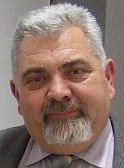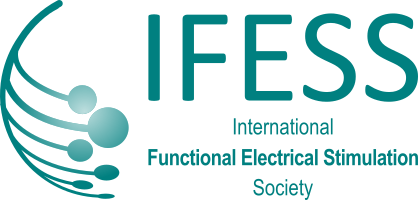Welcome
Welcome to the XXIV Annual Conference of the International Functional Electrical Stimulation Society (IFESS).
Annual Conferences of the IFESS are organized to promote the awareness, knowledge, and understanding of both electrical stimulation technologies and their uses. The IFESS bridges research, application, and healthcare to enhance quality of life through advocacy, education, and facilitation of inter-professional collaborations.
The IFESS meetings traditionally include lectures, oral, and poster presentations and exhibitors in the following areas: FES for upper and lower extremities, spinal cord stimulation, breathing-coughing and airway management, stimulation of denervated muscles, pain, urology, fitness and cardio-vascular system, implantable systems, technologies, clinical results of using FES, quality of life with FES, neurorehabilitation, hybrid systems (FES and robots), and BCI and FES.
The XXIV Annual Conference will run in parallel with the Summer School: Wearable robotics for rehabilitation and the XI External Control of Human Extremities Meeting. The contents of the two other activities complement the IFESS event, hence, the participants will benefit in the whole five days long event.
Conference Chairs

Assoc. Prof. Marinko Rade
MSc.Orth. Med., Ph.D.
CEO Orthopedic & Rehabilitation, Hospital Rovinj

Prof. Dejan Popović
Ph.D., Dr. Tec.
Member of the Serbian Academy of Sciences and Arts
Call for papers
Topics
- FES for upper and lower extremities
- Spinal cord stimulation
- Breathing-coughing and airway management
- Stimulation of denervated muscles
- Pain
- Urology
- Fitness and cardio-vascular system
- Implantable systems
- Technologies of FES
- Clinical results of using FES
- Quality of life with FES
- Neurorehabilitation
- Hybrid systems (FES and robots)
- BCI and FES
Instructions for preparing manuscripts
During the registration process the authors will be offered to submit the manuscript. This document shortly describes how to prepare the manuscript for the submission.
IFESS annual conference accepts only manuscripts describing original theoretical or practical results of the research, implementation of the theoretical results for solving engineering problems and description of a practical solution or instrument (a list of topics can be found above). Only results not published or presented elsewhere are acceptable.
Papers for the Conference must be prepared in accordance with the instructions that can be downloaded as:
- Word template of the paper (it is recommended that you use the *.docx version as a template and apply its built-in styles).
- One to four pages long manuscripts prepared in double column format as shown in the template are welcome as regular papers. Manuscripts must be submitted in electronic form in PDF format using the EasyChair conference management system not later than May 1 2020.
- The participants preparing their manuscripts for the Student Competition and considering possible publication in the Artificial Organs journal must submit a four-page manuscript.
Invited Speakers
Names of invited speakers will be published here soon.
Program
| Wed, Sep 9 | Thu, Sep 10 | Fri, Sep 11 | Sat, Sep 12 | Sun Sep 13 | |
|---|---|---|---|---|---|
| 09:00-12:00 | Session I | Session II | Session III | Session IV | ECHE XI |
| 12:00-12:30 | Sponsor time | School (test) | |||
| 12:30-14:00 | Lunch break | Lunch break | Lunch break | Lunch break | Free time |
| 14:00-15:20 | IFESS Ia | IFESS IIa | IFESS IIIa | IFESS IVa | |
| 15:20-15:40 | Coffee break | Coffee break | Coffee break | Coffee break | Public presentation |
| 15:40-17:00 | IFESS Ib | IFESS IIb | IFESS IIIb | IFESS IVb | Closing of the events |
| 17:00-18:00 | IFESS Board | CRUISE | IFESS Assembly | AWARDS | |
| 19:00-20:00 | Opening Session | Party time | Free time | ||
| 20:00-22:00 | Cocktail |
ECHE: Symposium on External Control of Human Extremities
CRUISE: …
Scientific Committee
- Nur Azah Hamzaid, Kuala Lumpur, Malaysia
- Christine Azevedo Coste, Montpellier, France
- Ines Bersch, Nottwil, Switzerland
- Manfred Bijak, Vienna, Austria
- Sean Doherty, London, UK
- Simona Ferrante, Milano, Italy
- Davis, Glen, Sydney (Lidcombe), Australia
- Jonathan Jarvis, Liverpool, UK
- Thierry Keller, Donostia-San Sebastián, Spain
- Cesar Marquez-Chin, Toronto, Canada
- Winfried Mayr, Vienna, Austria
- Kei Masani, Toronto, Canada
- Matija Milošević, Osaka, Japan
- Miloš Popović, Toronto, Canada
- Lana Popović Maneski, Belgrade, Serbia
- Dietmar Rafolt, Graz, Austria
- Thomas Schauer, Berlin, Germany
- Erika G. Spaich, Aalborg, Denmark
- Thomas Stieglitz, Freiburg, Germany
- Tamsyn Street, Salisbury, UK
- Janssen, Thomas, Amsterdam, Netherlands
- Philip Troy, Chicago, IL, USA
- Ken Yoshida, Indianapolis, USA
Payment
| Early fees before 1 August 2020 | Late fees after 1 August 2020 | |
|---|---|---|
| Standard IFESS member* | 420 € | 520 € |
| Standard non member | 470 € | 570 € |
| Student* | 280 € | 380 € |
| Visitor | 120 € | 120 € |
| ECHE | 120 € | 120 € |
| Summer school – standard | 120 € | 150 € |
| Summer school – student* | 100 € | 120 € |
*Supporting documentation should be sent to the Congress Secretariat to confirm that you are eligible for the discounted rate.
ECHE: Symposium on External Control of Human Extremities.
General Info
| Time Zone | The time zone in Croatia in September 2020 will be CEST (UTC+2 hours). |
| Electricity | Electricity is supplied at 230 V, 50 Hz (circular, European-style two-pin plugs). |
| Language | The official language of the conference is English. The official languages in Rovinj are Croatian and Italian. |
| Credit Cards, Currency and Exchange | The official currency in Croatia is Croatian Kuna (HRK). Exchange facilities are offered at the airport, in hotels, and at the exchange offices and desks of banks. Visa and Master Card are accepted at the registration desk, ATMs, in hotels, first class restaurants and city stores, but you should ask or look for the logo before ordering a service. |
| Insurance | The Organizing Committee cannot assume responsibility for injuries or losses occurring to persons or personal belongings during the Conference. Participants are therefore advised to travel with a valid insurance package. In the case any Force Major circumstances may lead to the cancellation of the congress registered participants are not entitled to any compensation. |
| Passport and Visa | Participants from outside the EU have to possess a passport valid for at least 6 months after the end of the Conference. Please check your visa requirements at the web-site of the Croatian Ministry of Foreign Affairs www.mvp.hr. If an entry visa is required, please allow sufficient time for this procedure. Upon request the Congress Secretariat will send a personal invitation to registered Conference participants only. To request an official letter of invitation for your visa application, be sure to have the following information ready when processing your request: your full name as it appears on the passport and your passport number. |
| Disclaimer | This procedure is intended to assist participants who need to obtain a visa or permission to attend the three-event conference 2020 and is not an official invitation covering fees and/ or any other expenses or financial support for the conference. The organizer is not to be held responsible for the outcome of your visa application. Those persons needing an official invitation letter in order to attend the congress may contact ifess2020@filidatravel.hr specifying the necessary details. |
| Smoking | Smoking is not permitted inside the conference building, restaurants and/or at the venues for the social functions. Smokers are required to smoke outdoors. Smoking is prohibited in public buildings, public transport, taxis, buses and trains. |
Venue
Rovinj is a city located on the north end of the Adriatic Sea, on the western coast of the Istrian peninsula. The population of Rovinj is about 15,000. Rovinj is a popular tourist resort and an active fishing port. The town is officially bilingual, Italian and Croatian. Many residents still speak Istriot, a Romance language.
Rovinj was a settlement of Venetian or Illyrian tribes and then captured by the Romans, who called it Arupinium or Mons Rubineus, and later Ruginium and Ruvinium. Originally, Rovinj was built on an island but got connected to the mainland in 1763.
The town of Rovinj, the third most populous town in Croatia, is one of the most important centers of Istria County and an administrative unit encompassing most of Istria.
Rovinj has a humid subtropical climate. The average temperatures go from 4.8° C in January to 22.3° C in July. The sea temperature is over 20° C from mid-June to September. From May to September Rovinj receives over ten sunny hours a day. The rainfall averages 94.1 cm a year and average air humidity is 72%.
Transportation. The center of Rovinj, which includes the old town, is very walkable and transportation by bike or scooter is a preferred means of getting around for many locals. The closest commercial international airports are Pula/Pola (approx. 30 km) and Trieste-Ronchi (approx. 150 km). Car rental is available at each of the airports. A convenient connection is via Ljubljana, capital of Slovenia (approx.140 km) and Zagreb, the capital of Croatia.
Contact
FILIDA TRAVEL
Dore Pfanove 7, 10000 Zagreb
ecm@filidatravel.hr
Tel: +385 1 4616 522

